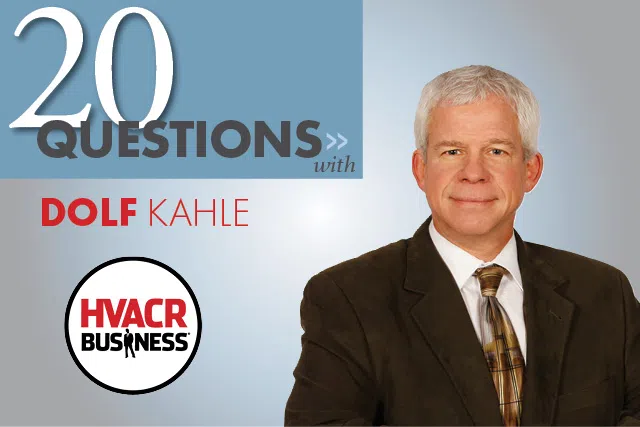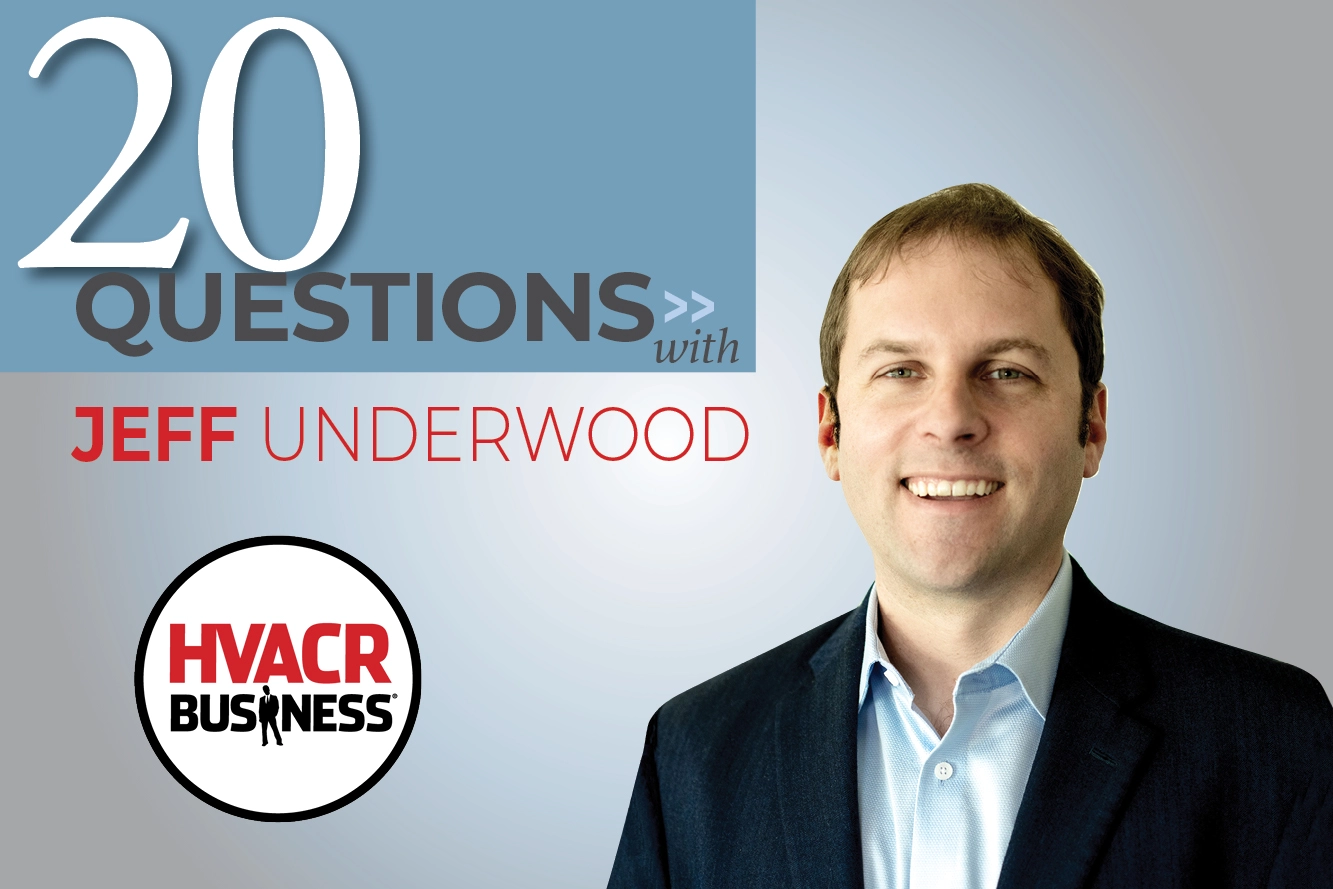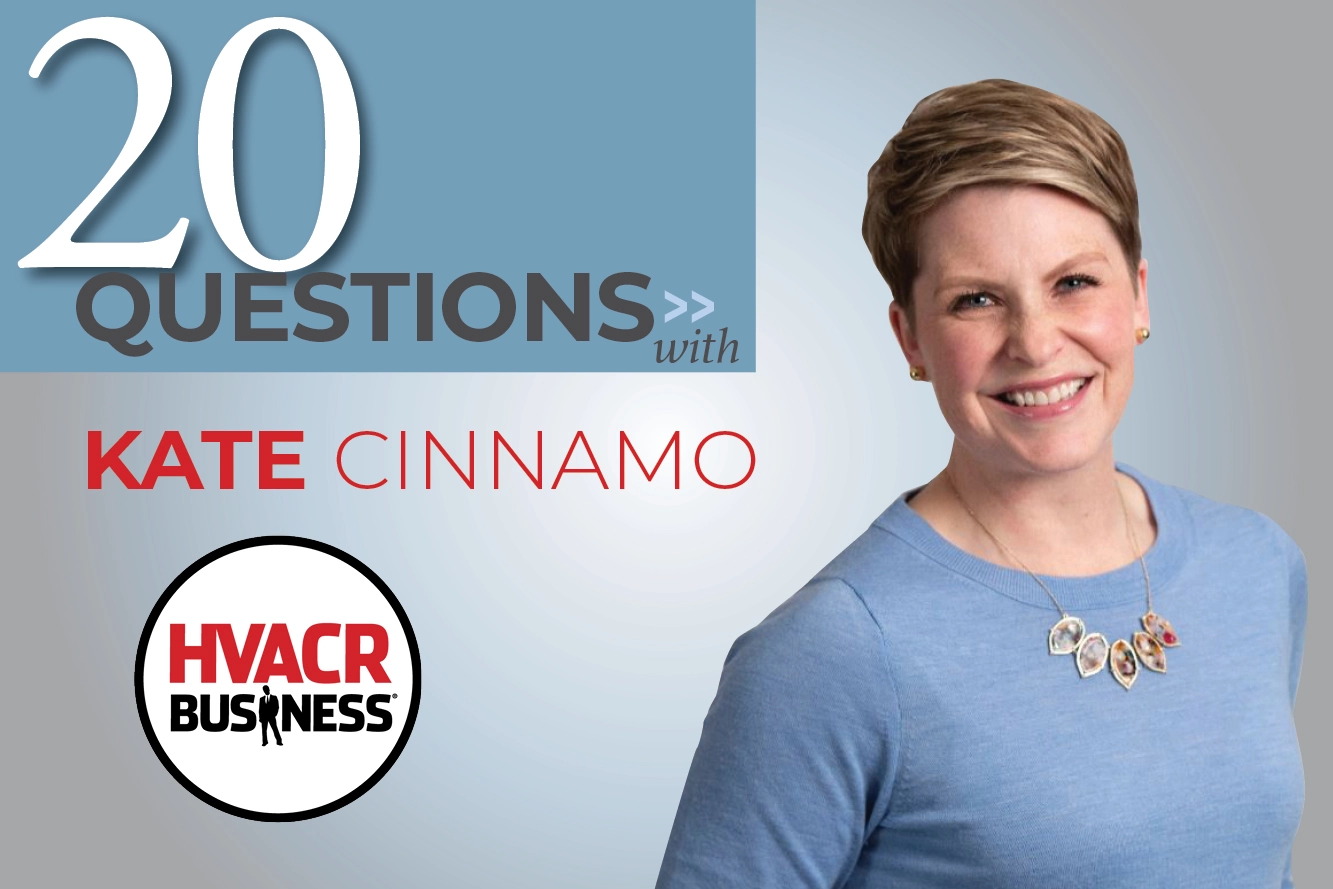Terry Tanker met with Dolfe Kahle, CEO of Visual Marking Systems, at the company’s headquarters to discuss strategic planning, fleet graphics, and lean organizations.
1. What is Visual Marking Systems’ core business?
VMS specializes in three markets: decals and labels for the OEM industry; vehicle graphics for any size fleet; and point-of-purchase graphics such as posters, banners, window graphics,
and more. We have complete in-house design services, manufacture all of the products, provide inventory management programs, and install graphics anywhere in the United States.
2. How important is it for contractors to use the proper signage on their fleets?
Your fleet is the most cost-effective advertising you can buy. Today’s vehicle graphics can last up to 10 years, and with the digital printing technology, your graphics will be extremely eye catching.
3. What are your company’s biggest challenges?
This year they are acquiring new, large, revenue- producing customers; improving internal process efficiency; and expanding existing business into the other markets we service.
4. VMS is a manufacturing company, however you often benchmark yourself against the service industry. Why?
To improve customer service. Customers remember two kinds of customer service — the great kind and the horrible kind. Everything else just blends into the background.
5. You recently won a customer service award from Smart Business magazine. Why/how were you selected for this honor?
Our customer support staff thought they were pretty good at the level of service they were providing and wanted to enter the competition. However, before they did, they went to a seminar, and when they came back they said, Wow we have a lot to learn. A year later they entered the competition, and didn’t win; but, they did the following year.
6. How do you build a customer service culture within your company?
First, leadership has to make it a priority. And, you have to lead by example. Then you haveto find, hire and train the right type of people. Finally, you have to celebrate the successes.
7. How do you create an environment where employees can thrive?
Training and education is the starting point, and then ask for ideas. Employees on the front lines always have the best understanding of how things can improve. That’s how we started our Better, Faster, Cheaper campaign.
8. Can you explain Better, Faster, Cheaper?
The Better, Faster, Cheaper campaign invites ideas from the entire company. We have averaged over 15 new BFC ideas per quarter for the past 12 years.
9. VMS is a lean organization. Can you explain what it is and why you believe it’s so important?
Lean is a culture of continuous improvement to eliminate waste and non-value-added actions or items. It has been extremely good for our bottom line.
10. You developed a customer Innovation Center. How does it work?
When a customer visits us, we involve the entire management team. We want them to listen to the customer’s needs and desires. That way the customer knows we are serious and that we understand their requirements because they have been communicated across the entire organization.
11. Where does innovation originate?
Almost always it comes from front line employees. And, it’s important for the management team to recognize and reward those who bring great ideas forward.
12. How do you cultivate a culture that encourages innovation?
You have to manage with an open door and open-mind policy. You have to always reinforce the fact that ideas are welcome. Rewards can be part of the process, but they are not the driving force. Visually displaying the ideas and group recognition typically works best.
13. How does this improve performance at VMS?
Better quality for the customer, lower cost, better service, and ultimately, better profit for the company.
14. How do you measure it?
We measure everything (probably too much). We have a corporate scoreboard that displays daily, MTD and YTD numbers of actual versus the plan for revenue, booked orders, on time delivery, rejects, and productivity.
15. What emphasis does training and education play at VMS?
Education has as to be a main pillar of any organization. It is part of our mission statement and has a line item in our income statement. Education breeds innovation.
16. Can you explain your “Caught in the Act” program?
Employees recognizing their peers for going above and beyond their normal job. They are rewarded with special gifts such as gift cards, lunches, or other rewards on a monthly basis.
17. Why do you place so much emphasis on strategic planning?
How can a company grow if it doesn’t have a well-thought out plan that is written down, communicated to the entire staff, places responsibility on key individuals, and has specific measureable goals with completion dates? Enough said!
18. How do you involve employees in the planning process?
Twice each year we take managers to off-site meetings where we do our strategic planning. So, from the outset, they are involved in the plan. Every manager has a color-coded version of the strategic plan mounted in their office and one in the cafeteria for all to see.
19. How do you get them to take ownership of the strategic plan?
All of the department managers do a SWOT analysis for the entire company and their departments. Their job is to look at VMS through the CEO’s eyes. Then we jointly develop three major goals to drive the strategic plan.
20. So, even though it’s early in the year, if you were reporting to your board how would that meeting go?
That would be a fun meeting for me. We are ahead of plan.






